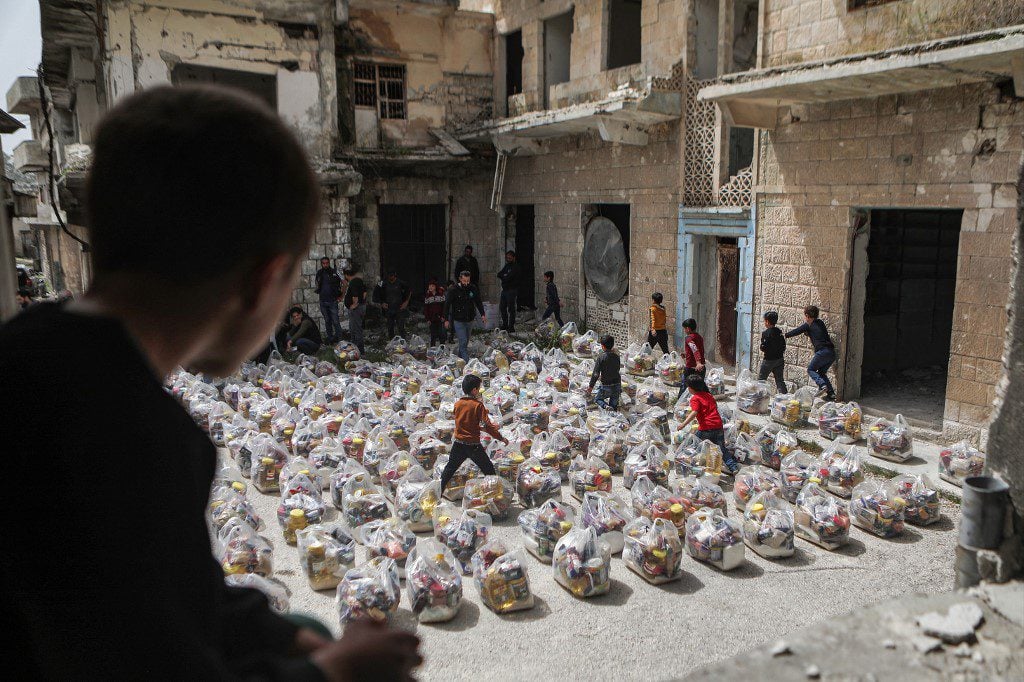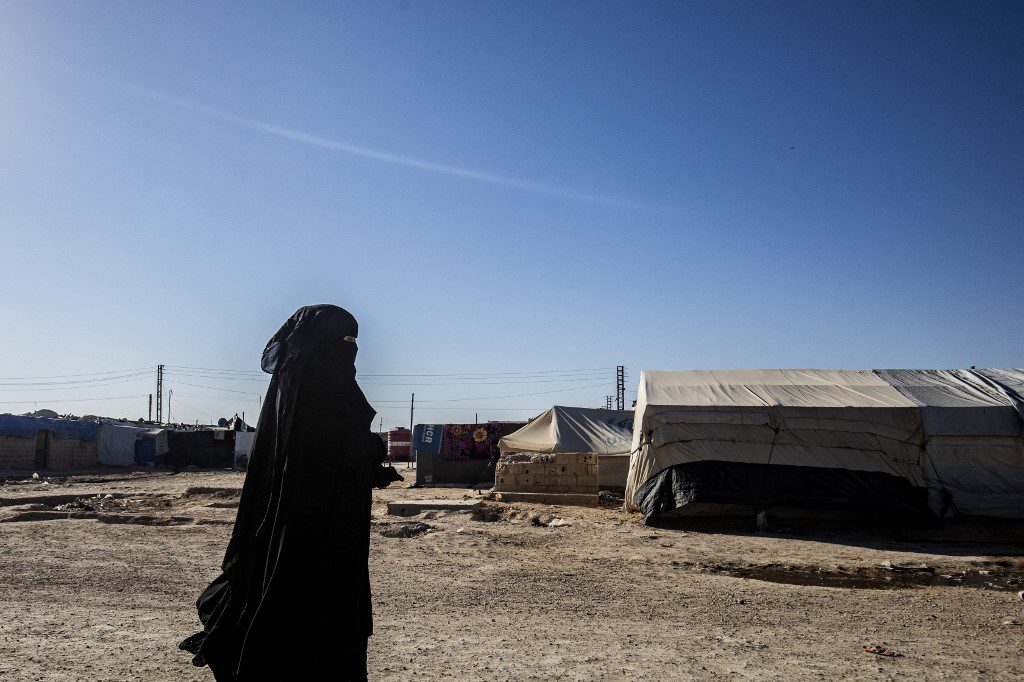
Hussein Ali Alzoubi
Sadness hangs over the life of Malak Taha, a resident of the Daraa governorate in southern Syria. Her 6-years-old twin children, Khaled and Khaldoun, are growing up before her eyes, and she cannot do anything to secure their rights to possess papers that prove their lineage or grant them the rights of education and property.
Malak was unable to register her sons in the official records of the Syrian government, fearing that they would be registered under unknown parentage.
Malak gave birth to her two children after her marriage to Walid, a member of the Free Syrian Army, in 2016. After the regime took control of Daraa in 2018, Walid disappeared while he on his way to Damascus to settle his situation and return to his job.
Malak, who shares the same story with other women in rural Daraa, says that the problem is that she does not have official identification documents for her husband. Walid could not register their marriage in the civil registry during the war, while families were scattered between the areas of control of the various conflicting parties.
The number of children of unknown parentage and unregistered children rose because the government did not record marriages and births. One reason is that the regime deliberately deprived the opposition-controlled areas of all government services.
According to an investigation published by the Al-Jumhuriya website in 2019, 1,826 children of unknown parentage were documented in Idlib and the north and west of Hama collated by a campaign titled “Who is your husband?” These children were born as an outcome of 1124 marriages.
In the north, east and west countryside of Aleppo, the investigation documented more than 2000 children of unknown parentage, in addition to 350 cases in a camp in the village of Khirbet al-Joz. The investigation estimated more than 8000 cases of children of unknown parentage in three camps controlled by the Syrian Democratic Forces.
Unknown Parentage in the Law
Syrian law defines unknown parentage as “every child whose parentage is not proven or whose father is not known, in addition to children who have no breadwinner, and who cannot be asked about their relatives because of their young age; and children born from an illegal relationship, even if their mother is known.”
And “any child whose father or parents were registered in the Syrian civil records, or originally belonged to the Syrian Arab Republic and was not registered within the specified period for registration in the civil registry records, that is, within 30 days of the occurrence of the birth, the Civil Status Law promulgated by Legislative Decree No. 26 of 2007 considers the child unregistered.”
Several Reasons and Lacking Solutions
Harmoon Center for Contemporary Studies attribute the spreading phenomenon of unknown parentage to the marriage of some Syrian women to anonymous foreign fighters or Syrian fighters who were later killed, and it wasn’t possible to obtain their documents because they were lost or both parents died. Parentage was challenging to prove in some cases because many marriages were registered with the husband’s alias.
However, attorney Salwa Najjar said to Fanack that illegal marriage and the loss of family identification papers are the primary reasons for spreading the phenomenon, especially during the war.
Illegal marriage in Syria occurs in accordance with Islam, in the presence of a sheikh, the bride’s guardian, a dowry, and mutual acceptance, but without official documentation.
Najjar, who worked in areas outside the regime’s control during the war, says that they were able to legalise many illegal marriages if the spouses were Syrians, known and had their identification papers.
In marriages in which the Syrian husband disappeared, and the wife did not know his real name, Najjar indicated that in this case, children could be given the lineage of their mother only through a maternity confirmation claim, and the father field would remain empty. On this basis, these children remain of unknown parentage on their father’s side, and they are treated according to Syrian law like other children of unknown parentage.
According to Najjar, if a Syrian mother or foreign parents gave birth on Syrian territory, the children would be treated as foreigners, and the government would hand them over to their countries.
According to human rights organisations, most foreign ISIS fighters married Syrian women with contracts documented by the qadi. These contracts did not include the husband’s real name but only his alias.
Families with no Official Documents

Many Syrian families face enormous challenges due to the loss of identification documents or their inability to record all the events that happened during displacement or forced eviction. Also, many areas spiralled out of the regime’s control, and the destruction or closure of civil registry departments and courts, making them only operative in the regime-controlled areas.
The Norwegian Refugee Council stated, in a survey report, that 70 per cent of refugees lack basic identity documents. Out of 734 internally displaced families in five areas in Daraa and Al-Quneitra, more than half the respondents reported that they had either lost their marriage certificate or that it had been confiscated, destroyed or left behind during their displacement.
Almost a quarter of the surveyed household members aged 14 and above, and thus eligible for a Syrian national ID card, are without national ID cards. Almost half of the children under 5 (304 out of 675) are not included in the household’s family booklet, which is necessary for obtaining other documents.
The study also states that one-third of children under 5 (195 out of 675) do not have a birth certificate. Some of them have birth notification documents issued in non-government-controlled areas, which government authorities don’t accept.
The situation in neighbouring countries is not much different. The NRC figures indicate that more than half of Syrian married couples in Lebanon do not have marriage certificates and that most under-fives are not included in the family booklet.
The UNHCR statistics also indicate that 69 per cent of the Syrian refugees in Lebanon could not follow the legal procedures to register their births in the foreigners’ registry. This percentage rises to 86 per cent with families that could not obtain proof documents, such as family booklets or family extracts.
A New Form in the Regime-controlled Areas
The unknown parentage phenomenon took a different form in the regime-controlled areas, as cases of throwing infants in the streets of Damascus and other cities increased.
Nada al-Ghabra, director of the Lahn al-Hayat Complex for Children’s Care in Damascus, revealed to pro-regime media that this complex receives approximately three cases of unknown parentage monthly. Ghabra said that these children reside in the complex, and after receiving them, it sends the documents to the civil registry for registration, and a file is opened for them.
According to Ghabra, the number of children abandoned by their parents since the beginning of 2022 rose to more than 10, while the previous year, it reached 50.
A judicial source reported to the Syrian newspaper, Al-Watan, in 2018 that the number of children of unknown parentage registered since 2011 has reached about 300, pointing out that the Justice Department in Damascus records a case of this kind every two months.
In a report in 2020, Syrians for Truth and Justice organisation documented at least 43 cases of new-born children abandoned by their parents during the second half of 2019 and the first half of 2020.
With the increasing number of unknown parentage cases in the regime-controlled areas, the government announced its intention to form a special committee to prepare a draft law for children of unknown parentage in partnership with several ministries, including the ministries of justice and interior.
In this regard, Minister of Social Affairs and Labour Mohamed Seif al-Din told Al-Watan newspaper that a special committee would be formed to prepare a draft law for children of unknown parentage, noting that this draft law is old and recent at the same time, considering that it was presented to the Parliament in 2018. Still, the Parliament rejected it at that time. He also claimed that “the number of children of unknown parentage is few and trivial.”

